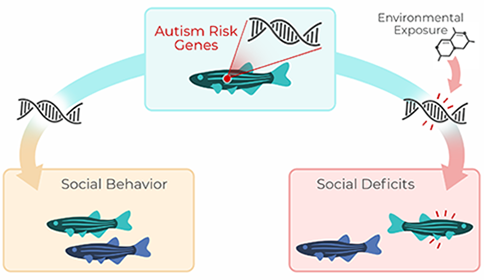
Little is known about how social behavior develops in the earliest stages of life. But most animals––including humans––are born with an innate ability to interact socially or form bonds with others. And that contributes to success throughout life.
Now, a new animal study conducted by University of Utah researchers and colleagues nationwide, points to a gene that is important for the earliest development of basic social behaviors.
The study could potentially lead to treatments that could in time, address sociability in humans, the researchers conclude.
Scientists suspect many social traits are determined before birth. One promising area of research suggests that social behaviors are influenced not only by our genetic makeup but also how and where we live.
To test this model, the scientists exposed zebrafish embryos to more than 1,100 known drugs––one drug per 20 embryos––for 72 hours beginning three days after conception.
The researchers determined that zebrafish exposed to four common antibiotics, used to treat respiratory tract infections in humans, were less likely to interact with other fish.
When the scientists gave a related drug to pregnant mice, the offspring behaved differently when they became adults. Even though they appeared normal, they communicated less with other mice and engaged in more repetitive acts—like repeatedly poking their head in the same hole—than other rodents.
To determine whether the anti-social behaviors could be reversed, the research team gave embryonic and young zebrafish an experimental drug. After treatment with the drug, fish exposed to the antibiotics were more likely to swim closer to other fish, demonstrating that the drug helped restore sociability.
Moving forward, the researchers plan to explore how and why this experimental drug had this effect.
